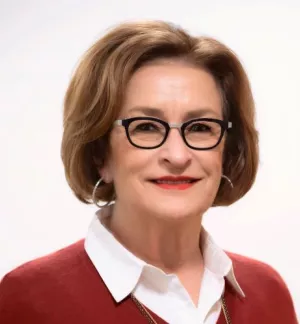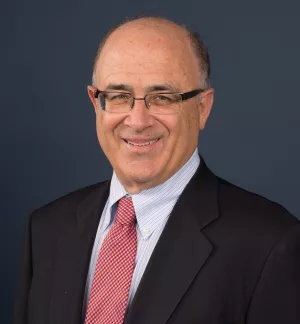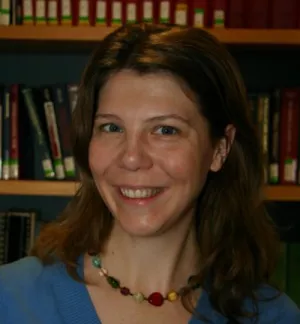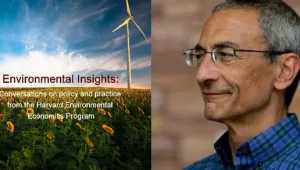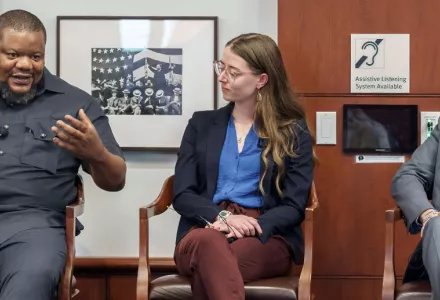
ColdHubs, an innovative Nigerian agricultural enterprise that uses solar-powered refrigerated storage units to keep food from spoiling, is slowly but surely expanding to nearby West African countries. But it faces big challenges to scale up and finance its operations, company founder and CEO Nnaemeka Ikegwuonu told a Harvard Kennedy School (HKS) audience celebrating the 2022 Roy Award winner.
“The work is remarkable. What strikes me is the innovation and impact with environmental and social benefits,” said Akash Deep, HKS Senior Lecturer in Public Policy, who moderated a panel on partnerships to meet global climate and sustainable development goals.
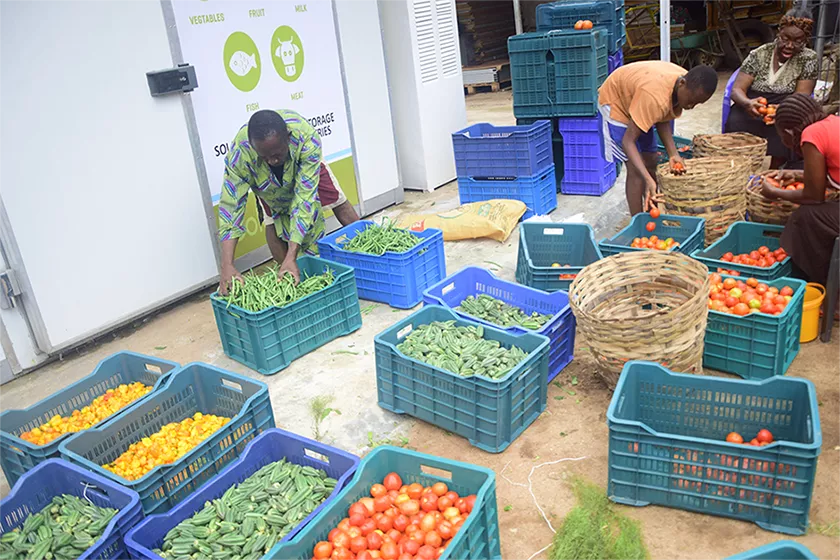
ColdHubs builds walk-in refrigerated units for Nigerian farmers and produce sellers to store food at markets. It is adding refrigerated trucks and cold storage units at farms as well. Ikegwuonu and other experts said that the biggest problem for hot agricultural African countries is about 40 percent of post-harvest produce spoils before it can be marketed and sold.
The 10th Roy Family Award for Environmental Partnership, administered by the Belfer Center’s Environment and Natural Resources Program (ENRP), was presented to ColdHubs at HKS on November 2. The company was piloted by a partnership between the Smallholders Foundation (of Nigeria), the Institute for Air Handling and Refrigeration (ILK Dresden) and the Deutsche Gesellschaft fur Internationale Zusammenarbeit (GIZ).
The climate-friendly company, started in 2015, has 54 operational cold-storage units in 22 states of rural Nigeria that allow local farmers to pay a small flat fee per crate of perishable produce, extending the freshness of vegetables and fruits from 2 to 21 days. Forty of the units are located in food markets and 14 on farms. Otherwise, farmers operate without refrigeration or use polluting diesel fuel for electrification and cold storage. ColdHubs also doubled the average household income for their customers – smallholder Nigerian farmers, retailers and wholesalers.
Ikegwuonu said in an interview that ColdHubs has begun expansion into Sierra Leone and is planning expansion into the Republics of Benin and Senegal as well. “The market is huge, the potential is massive,” he said, noting that he had received “requests from all across Africa for help.” He said that last year the ColdHubs units saved 52,700 tons of produce from spoilage, admittedly a “drop of water in the ocean” in the vast agricultural marketplace of Nigeria. Nigeria has 218 million people. “That’s a lot of mouths to feed,” he said. “We are solving the problem with very limited resources” and suffered setbacks during COVID. In addition to produce, ColdHubs units can be used to store meat and fresh fish.
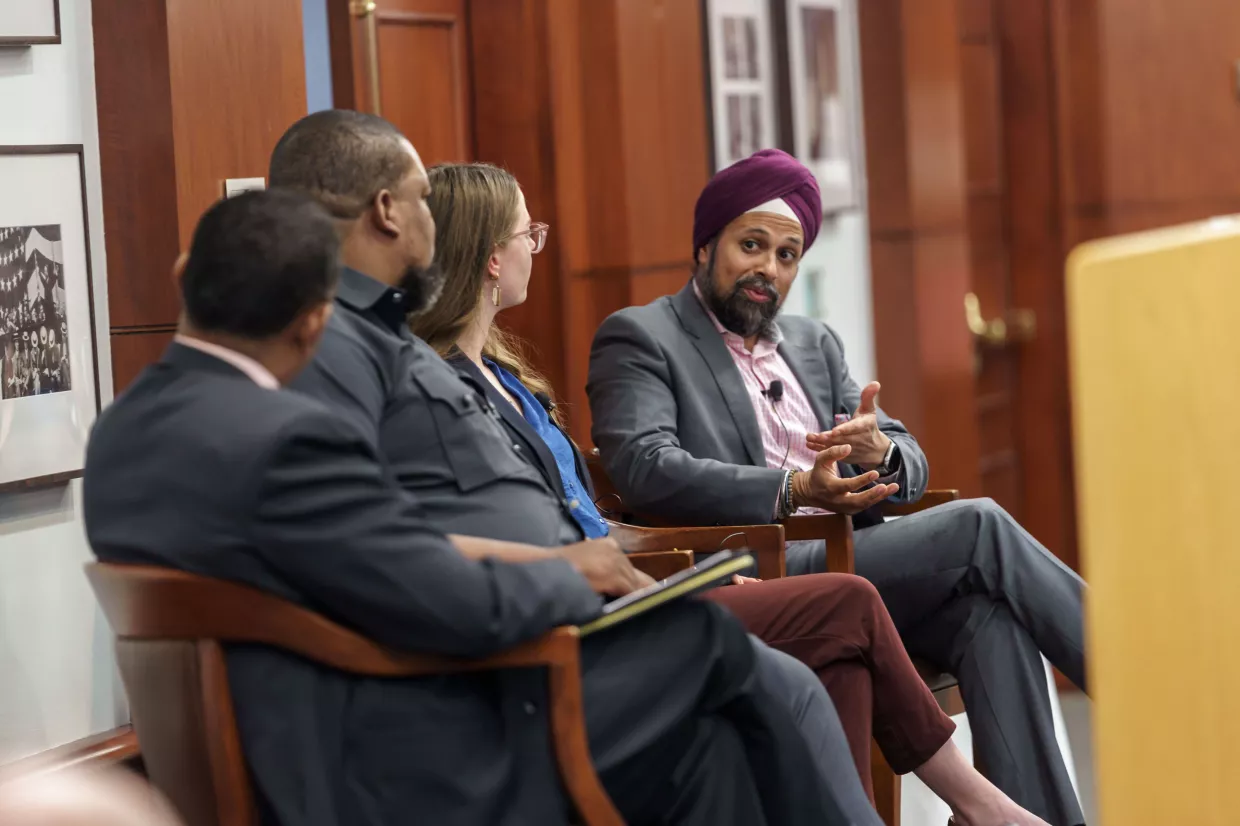
The biggest challenge in scaling-up is financing small to middle-sized companies, said Romi Bhatia, senior finance and investment advisor for USAID’s Africa bureau and a panelist at the Roy Award event. It is sometimes easier to get bigger investments than smaller ones, he said. Morgan Richmond, senior analyst at Climate Policy Initiative’s Global Innovation Lab for Climate Finance, agreed that financing in the “missing middle” was a problem for smaller ventures. “It’s the valley of death of funding,” she said. Richmond said she was “super impressed with ColdHubs and their inspirational model.”
ColdHubs’ Ikegwuonu said that publicity from the Roy Award had given the commercial company a boost and brought new opportunities for investment and connections to USAID that he would pursue. “I really appreciate the uniqueness of the award,” he said. Bhatia said he planned to connect Ikegwuonu to existing USAID technical assistance programs and also to impact investment funds to provide long-term capital to allow him to grow his business. He said that the entrepreneurship shown by Ikegwuonu showed he was “extremely determined, resilient to overcome many problems and someone who is an excellent problem-solver. It’s more than having a great idea. How do you execute on your vision? He’s demonstrated that very well.”
Bhatia added that the Roy Award “validates that African entrepreneurs need continual support to realize their entrepreneurial vision.” He said ColdHubs was “at the tipping point where he is ready to expand nationwide because he has overcome a lot of hurdles...Because much of the continent is facing challenges related to food insecurity and famine, ensuring that foods get to people and are not spoiled has a major impact on the nutrition and the health and well-being of local populations.”
Warmer temperatures due to climate change are exacerbating the food insecurity problem globally. Richmond noted that climate risks threatened agricultural productivity because of “increased drought, flooding, temperature and an increase in pests.” She added that there are “lots of exciting innovations in the harvest space with drought-resistant seeds, drip irrigation, and data-driven climate intelligence to give farmers more predictive capacity.”
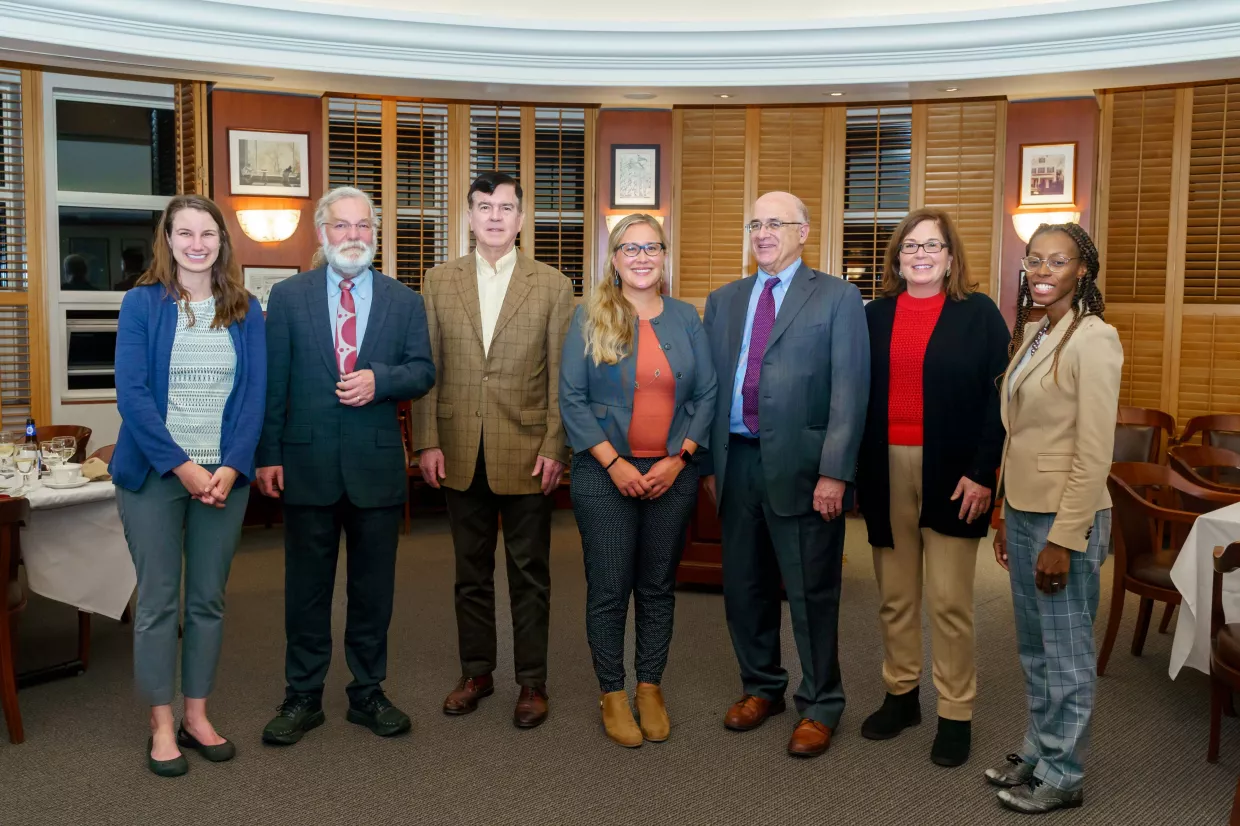
ENRP Director Henry Lee said that the solar-powered ColdHubs approach “reduces fossil fuels” and would be “highly replicable” in other countries in Africa and beyond. Ikegwuonu was joined at the ceremony by Michael Goldberg of ILK Dresden, which provided technical assistance to the ColdHubs project. Next-phase technology development includes solar-powered ice production and improving the batteries in the ColdHubs units.
The 2020 Roy Award winners, Clean Water for Carolina Kids, were also included in the celebration since the 2020 award was presented virtually due to COVID. “The 2020 and 2022 winning partnerships are so different – in region, focus area, and approach,” said ENRP Associate Director Amanda Sardonis, who directs the award. “Yet both exemplify the spirit of the award – recognizing the people who through their commitment, creativity, and collaborative spirit are working together to solve critical environmental problems.”
Watch the recording of the "Mobilizing Partnerships to Meet Global Climate and Sustainable Development Goals" panel discussion below.
Russell, Cristine. “Innovation Key to Nigerian Start-up to Keep Food Fresh.” November 21, 2022




